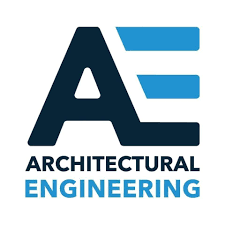Here’s a list of top certifications relevant to architectural engineering that professionals in the field may find beneficial:
- LEED Certification (Leadership in Energy and Environmental Design): Offered by the U.S. Green Building Council, LEED certification focuses on sustainable building design, construction, and operation practices. It’s highly valued in architectural engineering for its emphasis on environmental responsibility and energy efficiency.
- PMP Certification (Project Management Professional): While not specific to architectural engineering, PMP certification is crucial for professionals managing architectural projects. It demonstrates competence in project management processes, which is essential for ensuring projects are completed on time, within budget, and according to specifications.
- Revit Architecture Certification: Autodesk’s Revit Architecture certification validates skills in using Revit software for architectural design and documentation. It’s widely recognized in the industry and demonstrates proficiency in Building Information Modeling (BIM).
- Certified Construction Manager (CCM): Offered by the Construction Management Association of America (CMAA), the CCM certification is designed for professionals involved in construction management, including architectural engineers. It signifies expertise in managing all aspects of a construction project.
- Certified Energy Manager (CEM): The Association of Energy Engineers offers the CEM certification, which is ideal for architectural engineers focusing on energy efficiency and sustainable design. It validates skills in optimizing energy use in building systems and operations.

- Building Operator Certification (BOC): The BOC program provides training and certification for building engineers, operators, and facility managers. It covers energy-efficient building operations, maintenance practices, and HVAC systems, which are crucial for architectural engineers working on building projects.
- Professional Engineer (PE) License: While not a certification per se, obtaining a PE license is essential for architectural engineers involved in the design, construction, and maintenance of buildings. It ensures compliance with legal standards and demonstrates competency in engineering principles.
- Certified Cost Professional (CCP): Offered by the Association for Advancement of Cost Engineering (AACE), CCP certification is valuable for architectural engineers involved in project cost management. It signifies expertise in cost estimation, budgeting, and control in construction projects.
- Certified Passive House Designer/Consultant (CPHD/CPHC): The Passive House Institute offers certifications for professionals interested in designing energy-efficient, comfortable buildings using the Passive House standard. It’s particularly relevant for architectural engineers focusing on sustainable building design.
- Certified Sustainable Development Professional (CSDP): The Association of Energy Engineers offers the CSDP certification, which covers sustainable design, construction, and operation practices. It’s beneficial for architectural engineers interested in integrating sustainability into building projects.
These certifications vary in focus, from sustainable design and energy efficiency to project management and construction operations, offering architectural engineers a range of options to enhance their skills and credentials in the field.
 Clear My Certification All Certification Exam Answers
Clear My Certification All Certification Exam Answers
